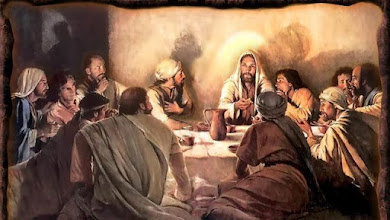Asked by the Pharisees when the Kingdom of God would come,
Jesus said in reply,
“The coming of the Kingdom of God cannot be observed,
It was apparent that the Pharisees were expecting some visible manifestation of the Kingdom, something concrete and empirical which would indicate that what Jesus said had come to pass. But this was not quite right. The Kingdom was not going to manifest in the way that an earthly empire might arise and spread. It was not going to be evident primarily by external political structures. Because the Pharisees were expecting something the observation of which would make obvious Jesus had to clear up their misconception about what the Kingdom was before he would more vaguely the question of when.
and no one will announce, ‘Look, here it is,’ or, ‘There it is.’
For behold, the Kingdom of God is among you.”
The Kingdom of God was principally wherever Jesus reigned in the hearts of women and men. These were the people in whom the seed found good soil, the leaven raising up the communities and societies of which they were a part, and the mustard seed that started off small and hidden before becoming a tree capable of transforming the world around it. The Kingdom was not, therefore, something that could be imposed from without. One could not point to a law or a political program and say, 'That is the Kingdom'. The religious milieu of Judaism at the time of Jesus tended to emphasize external ritual and legalistic conformity while treating the inner life as secondary. The Kingdom, by contrast, focused on the internal, requiring faith to perceive, and only secondarily sought to create external forms and structures and methods of enforcement. It tried to change people before it tried to change laws, as we saw with Paul and Philemon in today's first reading. It was obviously also the case that the Church would be instrumental in the legal abolition of slavery. But this was all predicated on transformation of the hearts of those who pursued that noble goal. Of course pursuing the external and the internal was not an either/or choice. But conversion of heart was the emphasis of the Kingdom because only that would lead to lasting and sustainable change.
There will be those who will say to you,
‘Look, there he is,’ or ‘Look, here he is.’
The desire to see some visible manifestation of the Son of Man or his Kingdom contained the risk that one would expose oneself to deception. We are supposed to desire the coming of the Kingdom. But the desire for visible concrete results is not guaranteed. For now we should focus on the expansion of the reign of Jesus in our hearts and those of others rather than on any climactic transformations of the world. Those changes are worth desiring, and they will come. But the desire to be in control of those changes tends to be unhelpful and destructive because it is typically driven by pride or vanity.
For just as lightning flashes
and lights up the sky from one side to the other,
so will the Son of Man be in his day.
Jesus assured his followers that the final manifestation of his coming wouldn't be subtle or hidden or indeed possible to miss. Therefore those claiming it already happened were frauds and charlatans. This was how Jesus obliquely addressed the question of when the Kingdom would come in fullness. It was as though he said it would be sufficiently obvious that recognizing it was not something on which they needed to waste time. Instead they should focus on the fact that for anyone who allowed Jesus to rule in her heart, the Kingdom was already present. This was not merely a nice idea to tide them over through a long dark history before the second coming. It was a reality which was evident in all of the lives it changed, all of the saints that bore witness to its transformative power.

No comments:
Post a Comment